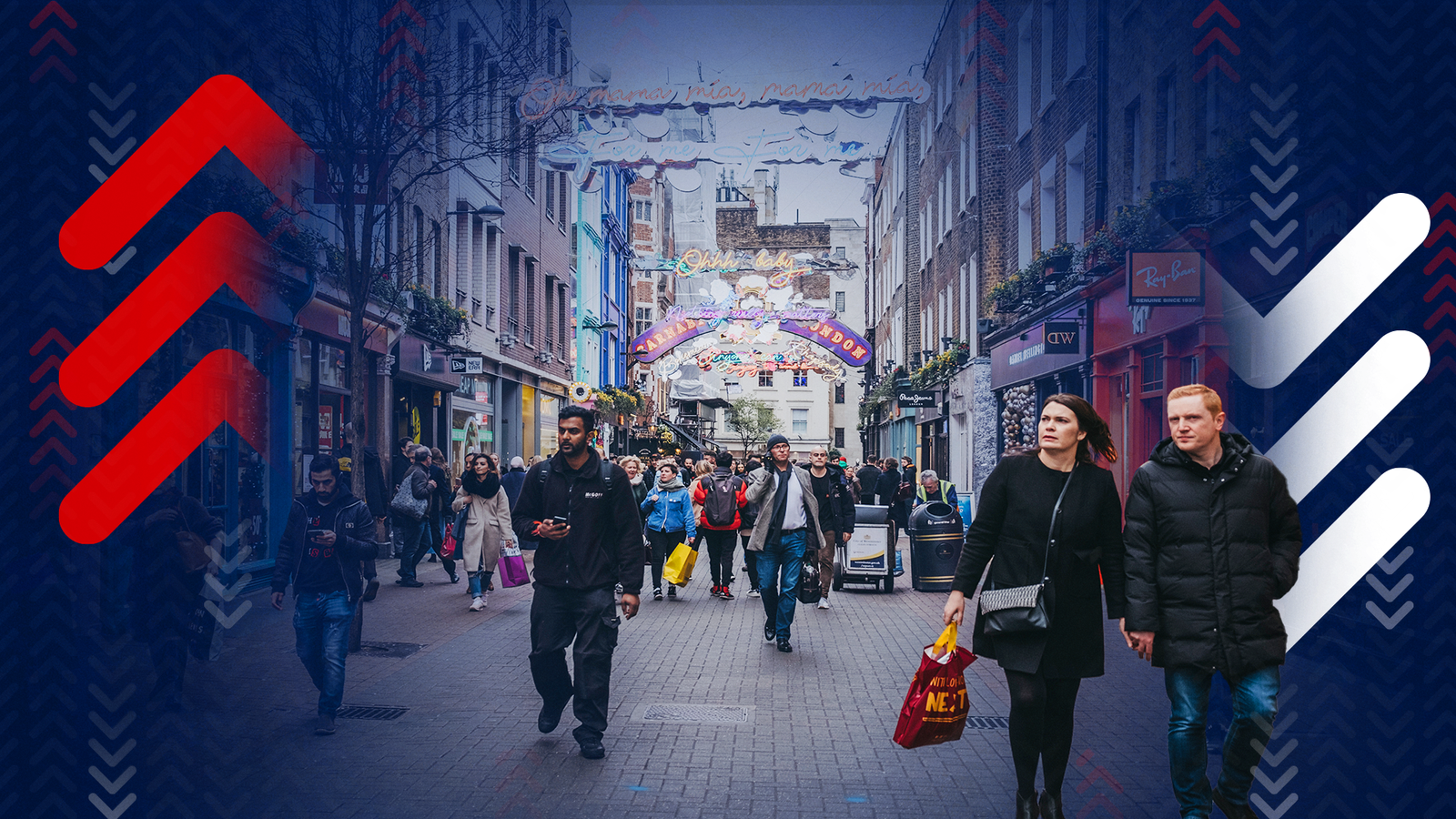Inflation has eased slightly to 10.1% from 10.5% the previous month as fuel price rises slowed.
Decreased transport costs were one of the main drivers of the lower inflation rate, along with restaurants and hotels, as prices dropped in cafés and restaurants from the December Christmas period to January.
Cost of living – latest: Semi-skimmed milk and children’s jeans – the details behind inflation
The rate eased in January from December in the latest sign that the UK might have seen the worst of inflation after a 41-year high of 11.1% was recorded in October.
Spending calculator: See which prices have gone up or down
The reduction is bigger than economists polled by the Reuters news agency had expected but is in line with a forecast by the Bank of England’s money policy committee earlier this month.
Inflation – the rate at which prices rise – had remained high as food prices continued to increase faster than the regular rate of inflation. Food inflation hit 16.8% in December but the latest figures suggest that may have peaked. The rate of food inflation dipped slightly to 16.7%.
Industrial food production is dependant on energy and so is vulnerable to price rises.
Greater price rises in alcohol and tobacco partially offset the inflation suppressing effects of slower transport and hotel and restaurant price rises.
Inflation began to increase in late 2021, when supply chain problems linked to COVID-19 lockdowns and the associated worker shortages meant demand for goods could not be met.
Russia’s invasion of Ukraine exacerbated the problem as many countries, particularly those in Europe, scrambled to find other energy sources and reduce their use of Russian gas. This pushed up the cost of energy and many other goods as a result.
Responding to the figures, Chancellor Jeremy Hunt said any decline in inflation is welcome but “the fight is far from over”.
He said: “High inflation strangles growth and causes pain for families and businesses – that’s why we must stick to the plan to halve inflation this year, reduce debt and grow the economy.”
But Labour’s shadow chancellor, Rachel Reeves, said: “With inflation still close to a 40 year high, people will be asking if 13 years of Tory government has left them and their family feeling better off? The answer will be no.
“Despite Britain’s enormous potential, in April households will be hit by another economic blow when energy prices go up.
“Labour would be bringing in a proper windfall tax on oil and gas giants now to stop energy bills going up in April.
“Our long-term plan to sprint to clean power and insulate 19 million homes will keep bills low for the future too, and get our economy growing.”
